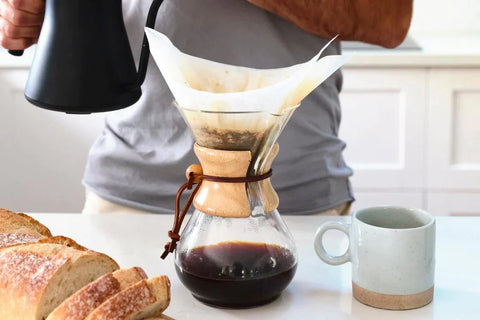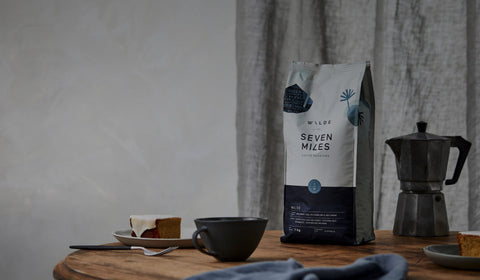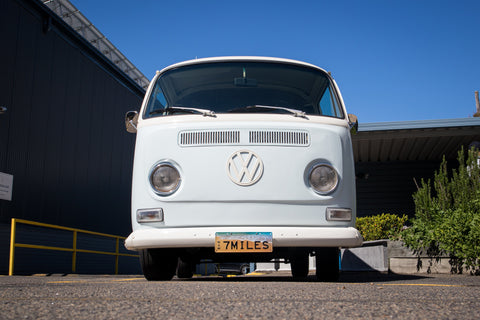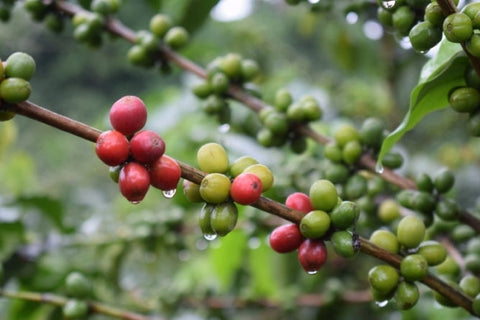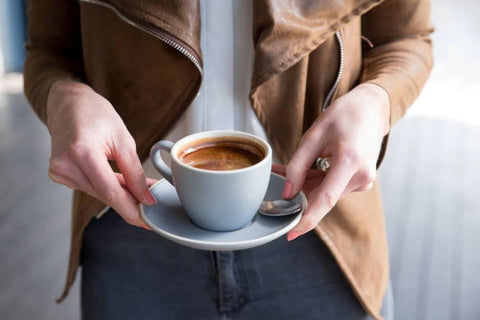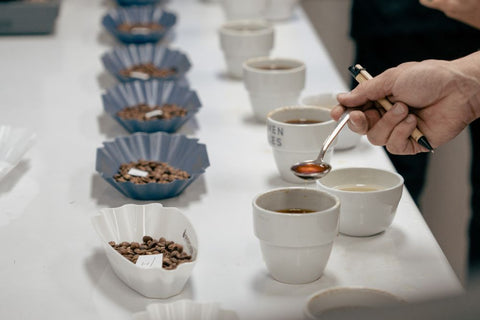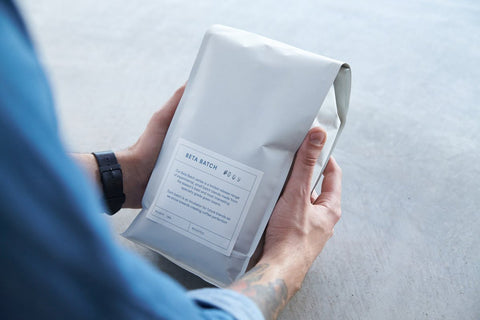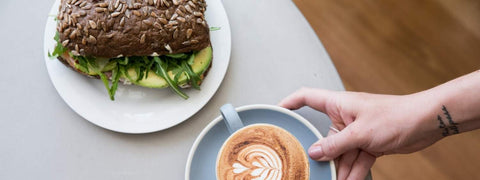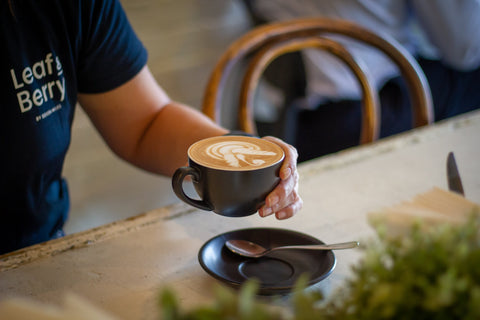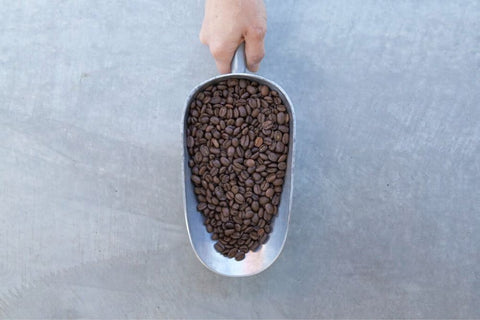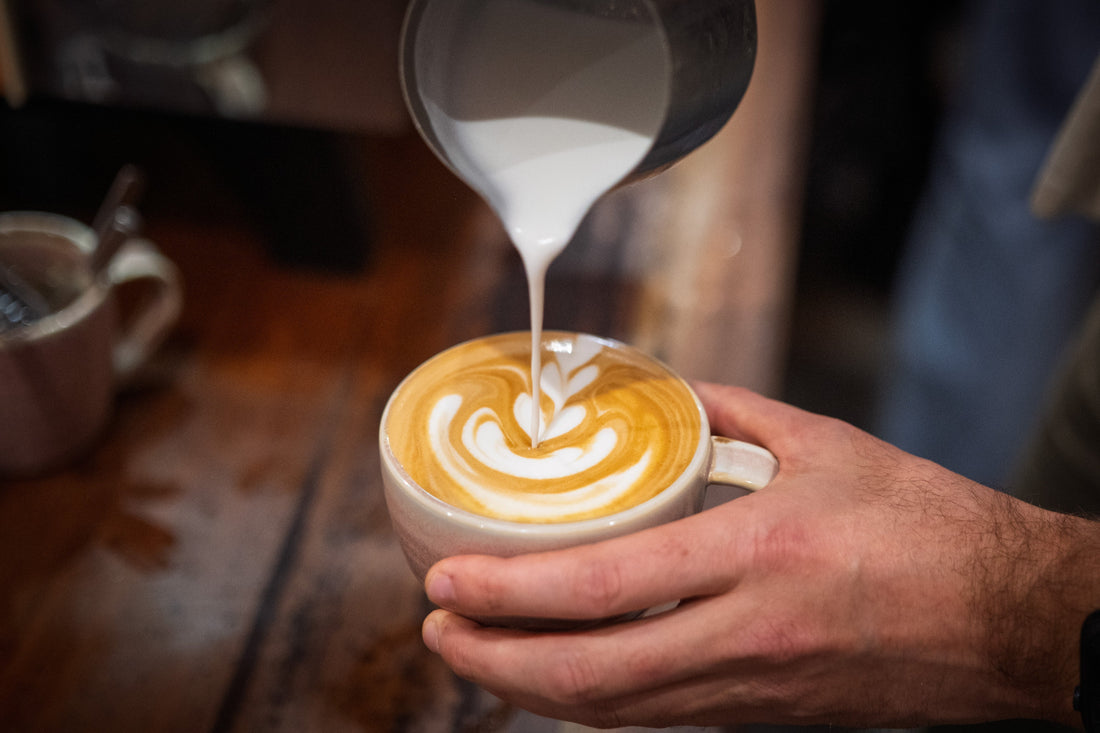Quick Answer Box
- Daily limit: 400mg for healthy adults (about 4 cups of coffee)
- Half-life: 5-6 hours (affects sleep if consumed late)
- Peak effects: 30-60 minutes after consumption
- Best cutoff time: 6+ hours before bedtime
- Solution: Half Caff coffee for afternoon energy without sleep disruption
Health experts say the safe daily caffeine limit for healthy adults is around 400mg. That’s roughly four cups of brewed coffee. But here’s the kicker: everyone’s tolerance is different. Some folks can sip espresso at 9pm and sleep like a baby, others feel jittery after a single flat white.
Finding your sweet spot means enjoying all the good stuff — better focus, improved mood, and even long-term health perks — without tipping over into shaky hands, restless nights, or the dreaded 3pm crash.
But let’s be honest. When that first sip hits in the morning, when your blurry day suddenly clicks into colour, you’re probably not counting milligrams. You’re savouring the ritual. The aroma, the warmth, the little spark that says, “Right, let’s do this.”
That surge of energy? It’s not magic (though it feels like it). It’s caffeine doing its thing. And like any good relationship, the trick is balance.
Which brings us to our newest creation: All Day, our Half Caff blend. It’s the perfect middle ground between full-strength and decaf. Big flavour, smooth finish, and just the right kick to keep you fuelled without overdoing it.
Because at Seven Miles, coffee isn’t just a drink. It’s the thing that gets you moving, connects you with others, and makes the everyday a little more extraordinary.

What Is Caffeine And How Does It Work?
The Science Behind Your Morning Energy
Caffeine is nature's little wake-up call. Coffee plants produce caffeine in their leaves, seeds, and fruit as a natural pesticide – it paralyses and kills certain insects that would otherwise feast on the plant. But for us humans, it works completely differently.
Instead of paralysing us, caffeine blocks adenosine, the neurotransmitter that makes us feel tired. When adenosine can't bind to its receptors, we don't receive those natural "time to rest" signals. The result? More alertness, sharper focus, and – let's be honest – a better mood.
Key point: Caffeine doesn't actually give you energy; it prevents your brain from receiving the signals that you're tired.
Timeline: How Caffeine Moves Through Your Body
| Time After Consumption | What's Happening |
|---|---|
| 10 min | Caffeine enters bloodstream |
| 20 min | You start feeling more alert |
| 30-60 min | Peak concentration in blood |
| 3-5 hrs | Half the caffeine is eliminated |
| 8-14 hrs | Most caffeine is cleared from body |
How Much Caffeine Is in Different Coffee Types?
Not all coffee is created equal when it comes to caffeine content. Understanding these differences helps you make informed choices throughout your day.
Caffeine Content Comparison
| Coffee Type | Serving Size | Caffeine Content | Seven Miles Equivalent |
|---|---|---|---|
| Espresso (single) | 30ml | 63mg | The Benchmark blend |
| Long Black | 120ml | 126mg (dbl. shot) | Any of our Single Origins |
| Flat White | 160ml | 126mg (dbl. shot) | House Espresso |
| Filter | 240ml | 95-165mg | Pour Over blends |
| Cold Brew | 240ml | 150-240mg | Cold Brew concentrate |
| Half Caff | 240ml | 45-80mg | All Day blend |
| Decaf | 240ml | 2-5mg | Colombian Decaf |
Note: This table’s more of a friendly nudge than gospel truth. Caffeine content can swing wildly depending on your machine, extraction time, dose, grind, and even your portafilter’s personality. For best results, trust your gear, your barista instincts, and your taste buds.
Arabica vs Robusta: The Caffeine Difference
The coffee plant's relationship with caffeine varies significantly across species:
- Arabica beans (which we primarily use): 1.2-1.5% caffeine by weight
- Robusta beans: 2.2-2.7% caffeine by weight (nearly double!)
Even within the same species, factors affect caffeine concentration:
- Altitude: Higher elevation = slower growth = more complex flavours but slightly less caffeine
- Soil composition: Nitrogen-rich soils increase caffeine production
- Climate: Stress from temperature fluctuations can increase caffeine levels
This is why our high-altitude specialty coffees deliver incredible flavour complexity while being naturally moderate in caffeine.
Brewing Methods and Caffeine Extraction
Is 200mg of caffeine a lot? It's about 2 cups of coffee – half your daily limit. But brewing method matters:
- Espresso: High pressure, short time = concentrated caffeine
- Pour Over: Longer contact time = more extraction
- Cold Brew: Extended steeping (12-24 hours) = highest caffeine
- French Press: Full immersion = higher caffeine than drip
Try Our Half Caff All Day Blend - Perfect for Any Brewing Method:
What Are the Benefits and Risks of Caffeine?
Proven Health Benefits (According to Johns Hopkins Medicine)
The effects of caffeine typically begin within 15-45 minutes and can last several hours. During this time, you might notice:
Immediate benefits:
✓ Improved mental focus and concentration
✓ Enhanced physical performance (up to 12% improvement)
✓ Increased metabolic rate (3-11% boost)
✓ Better mood and reduced depression risk
Long-term benefits from moderate consumption:
✓ Reduced risk of Type 2 diabetes (23-50% lower risk)
✓ Protection against Parkinson's disease (32-60% lower risk)
✓ Lower risk of certain liver conditions
✓ Potential protection against some cancers
✓ Rich source of antioxidants (often the #1 source in Western diets)
Signs You're Having Too Much Caffeine
Can you have too much caffeine? Absolutely. While 400mg daily is generally safe, sensitivity varies widely. Some people feel jittery after one cup; others can drink espresso at dinner and sleep soundly.
Watch for these warning signs:
- Jitters or trembling hands
- Racing or irregular heartbeat
- Anxiety or restlessness
- Digestive issues
- Headaches
- Insomnia (even from afternoon coffee)
- Dependence (needing coffee to feel "normal")
Caffeine sensitivity factors:
- Genetics (some people metabolise caffeine 40x slower)
- Medications (especially antibiotics and antidepressants)
- Age (sensitivity increases as we get older)
- Pregnancy (recommended limit: 200mg daily)
When Should You Stop Drinking Coffee Each Day?
What time should I stop drinking coffee? The answer depends on when you sleep, but here's the science:
Caffeine has a half-life of 5-6 hours. This means if you drink a 120mg flat white at 3 PM:
- 6 PM: 60mg still in your system
- 9 PM: 30mg still active
- Midnight: 15mg still present
Your Personal Coffee Cutoff Calculator
| Bedtime | Latest Regular Coffee | Latest Half Caff | Latest Decaf |
|---|---|---|---|
| 9 PM | 1 PM | 4 PM | Anytime |
| 10 PM | 2 PM | 5 PM | Anytime |
| 11 PM | 3 PM | 6 PM | Anytime |
| Midnight | 4 PM | 7 PM | Anytime |
Pro tip: If you're sensitive to caffeine, subtract 2 hours from these times.
Should I Drink Coffee in the Afternoon?
An afternoon coffee can be a beloved ritual, but it's all about smart choices. That post-lunch energy dip (usually 1-3 PM) is natural – your body temperature drops slightly, triggering sleepiness.
Your afternoon options:
- Switch to Half Caff (our All Day blend): Get the ritual and taste with 50% less caffeine
- Try a smaller serving: Single shot instead of double
- Go earlier: 1 PM coffee affects sleep less than 3 PM
- Take a coffee nap: Drink coffee, then nap 20 minutes – wake up as caffeine peaks
What Is Half Caff Coffee? Your All-Day Solution
Why We Created All Day Half Caff
Our All Day blend is the sweet spot between full strength and decaf. We combined:
- The Cat's Pyjamas (our rich, chocolatey house blend)
- Colombian Decaf (smooth, naturally processed)
The result? Chocolate, almond, and cinnamon notes with steady energy and zero trips to jitter town.
Who Should Choose Half Caff?
Half Caff is perfect if you:
- Love afternoon coffee but value your sleep
- Feel sensitive to regular coffee's effects
- Want to reduce caffeine without losing the ritual
- Enjoy 3+ cups daily but worry about overdoing it
- Experience afternoon crashes from morning coffee
- Are gradually reducing caffeine intake
Customer favourite combo: Regular coffee in the morning, Half Caff all afternoon.
Why not try it out with our Balanced Buzz Coffee Sampler, including three distinct blends to suit every mood:
- The Cat’s Pyjamas – our bold crowd-pleaser with notes of maple syrup, cocoa, and cinnamon
- Goldilocks – a just-right classic with nutty, fruity, and citrusy layers
- All Day – our smooth new Half Caff hero, delivering all the flavour with half the buzz
Each 250g bag is roasted fresh in Sydney and comes with a recipe card to help you nail your brews at home.

Practical Tips for Finding Your Caffeine Balance
Create Your Personal Caffeine Schedule
Finding your perfect balance isn't just about limiting intake – it's about strategic timing:
The ideal caffeine schedule:
- Wait 90-120 minutes after waking (lets cortisol peak naturally)
- Have your strongest coffee mid-morning (9:30-11:30 AM)
- Switch to Half Caff after lunch (maintain energy, protect sleep)
- Stop all caffeine 6+ hours before bed (ensure quality sleep)
Smart Consumption Strategies
Pair with protein: Coffee with breakfast (especially protein and healthy fats) creates a gradual energy curve versus the spike-and-crash of coffee alone.
Stay hydrated: Alternate water with coffee. While regular drinkers adapt to coffee's mild diuretic effect, hydration enhances caffeine's benefits and minimises headaches.
Try caffeine cycling: Reduce intake one week monthly to reset tolerance:
- Week 1-3: Normal consumption
- Week 4: All Half Caff (maintains ritual, reduces tolerance)
Listen to your body: That 3 PM slump might need a walk, not a coffee. Sometimes movement, light, or even 5 minutes of fresh air provides better renewal than caffeine.
How Long Does Caffeine Stay in Your System?
While caffeine's half-life is 5-6 hours, complete elimination takes longer:
- 99% eliminated: 10-12 hours
- Fully cleared: Up to 14 hours
- Metabolite traces: Detectable for days
This is why morning coffee rarely affects sleep, but afternoon cups might.
About This Article
Author: Mike Ford – the man behind the magic at Seven Miles Coffee Roasters!
As our Roaster & Quality Assurance expert, Mike doesn’t just roast coffee – he crafts flavour journeys. With 21 years of experience at Seven Miles, he’s a walking encyclopedia of beans, blends, and brew perfection. From dialing in roast profiles to running rigorous quality checks, Mike ensures every batch meets our gold-standard.
Obsessed with detail and driven by taste, Mike’s blend of science, skill, and sensory wizardry guarantees that every sip sings. Basically, if your coffee’s hitting all the right notes, Mike’s the one conducting behind the scenes.
Medical Review: Health claims verified against current research
Last Updated: August 2025
Sources:
- The Safety of Ingested Caffeine: A Comprehensive Review - PMC
- Healthdirect Australia - Caffeine Guidelines
- Caffeine - Health & Wellbeing Queensland
- Coffee and health: What does the research say? - Mayo Clinic
- Severini, et al. (2017). How Much Caffeine in Coffee Cup? Effects of Processing Operations, Extraction Methods and Variables
- 9 Reasons Why (the Right Amount of) Coffee Is Good for You | Johns Hopkins Medicine
